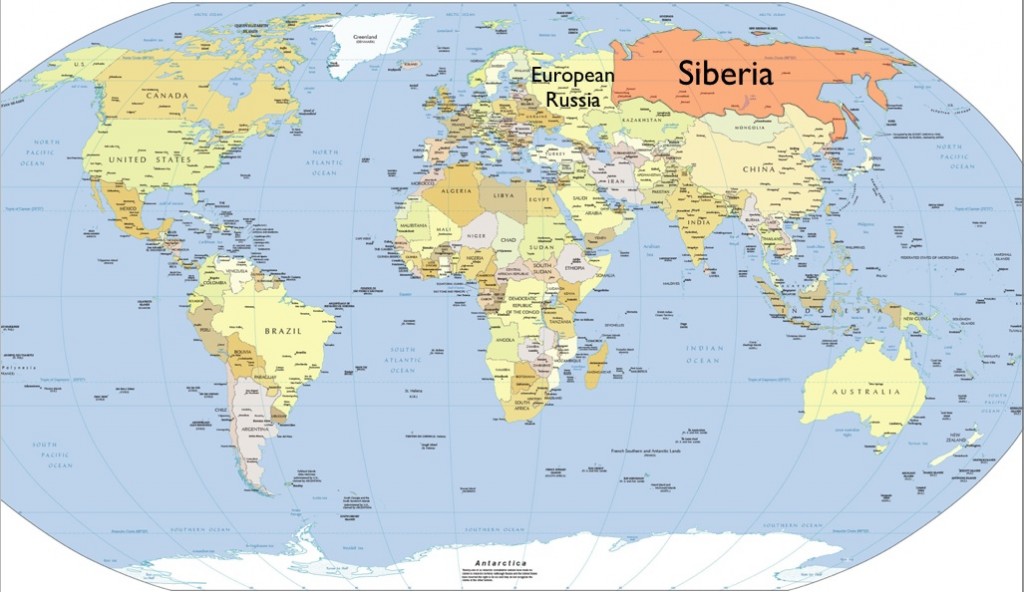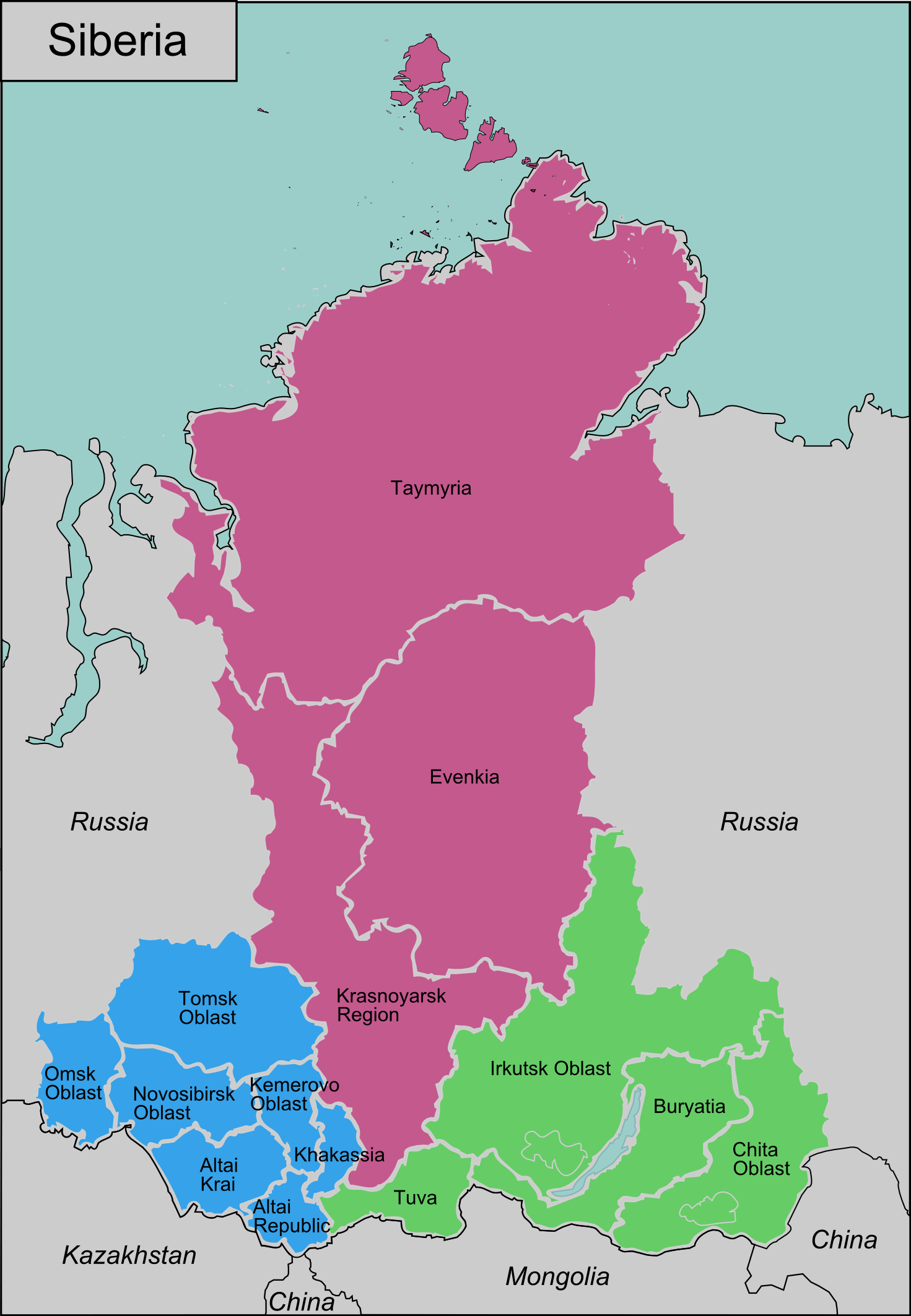Where Is Siberia: Unraveling The Mysteries Of Russia's Vast Wilderness
When you hear the name Siberia, visions of vast frozen landscapes, deep forests, and a sense of remoteness often come to mind. Siberia is not just a distant land but a region that plays a crucial role in the geography, economy, and history of Russia. This immense territory stretches across much of northern Asia, encompassing a wide array of natural and cultural wonders. If you're wondering where Siberia is, this article will take you on a journey to explore its location, significance, and fascinating aspects.
Siberia has long been shrouded in mystery, partly due to its challenging climate and remote geography. However, it is far more than just a frozen wasteland. It is a land rich in resources, culture, and history, making it an essential part of the global map. Understanding where Siberia is located is the first step toward appreciating its significance on the world stage.
As we delve deeper into this topic, we will explore the geography, history, economy, and cultural aspects of Siberia. By the end of this article, you will have a comprehensive understanding of where Siberia is and why it matters. So, let's embark on this fascinating journey to discover Siberia!
Read also:1965 Lunar New Year Animal Exploring The Symbolism And Cultural Significance
Table of Contents
- Geographical Location of Siberia
- A Brief History of Siberia
- Natural Resources in Siberia
- Climate Conditions in Siberia
- Siberian Culture and Traditions
- Major Cities in Siberia
- Economic Importance of Siberia
- Environmental Challenges in Siberia
- Tourism in Siberia
- Conclusion: The Significance of Siberia
Geographical Location of Siberia
Siberia is located in northern Asia and constitutes a significant portion of the Russian Federation. It spans an area of approximately 13.1 million square kilometers, making it one of the largest regions in the world. The region is bordered by the Ural Mountains in the west, the Pacific Ocean in the east, and the Arctic Ocean in the north.
One of the defining features of Siberia's geography is its vast expanse of land, which includes diverse landscapes such as tundra, taiga, and steppes. The Ob, Yenisei, and Lena rivers are some of the major waterways that flow through this region, contributing to its unique ecosystems.
Why Is Siberia's Location Significant?
Siberia's location is crucial for several reasons:
- Strategic Position: Siberia serves as a vital link between Europe and Asia, making it a key player in global trade and transportation routes.
- Natural Resources: The region is rich in natural resources, including oil, gas, and minerals, which contribute significantly to the Russian economy.
- Cultural Diversity: Siberia is home to various indigenous groups, each with its own unique traditions and languages.
A Brief History of Siberia
The history of Siberia dates back thousands of years, with evidence of human habitation found in archaeological sites across the region. However, it was during the 16th and 17th centuries that Siberia began to attract the attention of Russian explorers and settlers.
Russian expansion into Siberia was driven by the desire for fur, which was highly valued in European markets. The establishment of trading posts and military outposts gradually led to the colonization of the region. By the 19th century, Siberia had become an integral part of the Russian Empire, serving as both a place of exile and a source of natural resources.
Key Events in Siberian History
Here are some key events that shaped Siberia's history:
Read also:Dfw Airport To Arlington Tx Your Ultimate Travel Guide
- 1581: The conquest of Siberia began when Cossack leader Yermak Timofeyevich led an expedition into the region.
- 1725: The Great Northern Expedition, led by Vitus Bering, explored the Siberian coastline and the Bering Strait.
- 1918: The Russian Civil War saw significant battles in Siberia between the Bolsheviks and the White Army.
Natural Resources in Siberia
Siberia is renowned for its abundant natural resources, which play a pivotal role in the global economy. The region is rich in fossil fuels, including oil, natural gas, and coal, as well as valuable minerals such as gold, diamonds, and iron ore.
According to the U.S. Energy Information Administration, Siberia holds some of the largest reserves of oil and natural gas in the world. These resources are crucial for meeting global energy demands and contribute significantly to Russia's economy.
Environmental Concerns
While the extraction of natural resources has brought economic benefits, it has also raised environmental concerns. The exploitation of Siberia's resources has led to deforestation, pollution, and habitat destruction, threatening the delicate ecosystems of the region.
Climate Conditions in Siberia
Siberia is known for its harsh climate, characterized by long, cold winters and short, mild summers. The region experiences some of the lowest temperatures on Earth, with temperatures dropping as low as -68°C (-89°F) in certain areas.
The Siberian climate is influenced by its proximity to the Arctic Ocean and the vast landmass it occupies. This results in extreme temperature variations between seasons, making it a challenging environment for both humans and wildlife.
Adaptations to the Climate
Despite the harsh conditions, both humans and animals have adapted to life in Siberia:
- Indigenous peoples have developed unique clothing and housing to withstand the cold.
- Animals such as the Siberian tiger and reindeer have evolved thick fur and other adaptations to survive in the region.
Siberian Culture and Traditions
Siberia is home to a rich tapestry of cultures and traditions, shaped by its diverse population. The region is inhabited by various indigenous groups, including the Yakuts, Evenks, and Buryats, each with its own unique customs and languages.
Traditional Siberian culture is deeply connected to nature and the environment. Music, dance, and storytelling play a significant role in preserving the cultural heritage of the region. Festivals such as Ysyakh, celebrated by the Yakut people, highlight the vibrant cultural life of Siberia.
Modern Influences
While traditional culture remains strong, modern influences have also impacted Siberian society. Urbanization and globalization have introduced new ideas and technologies, leading to a blend of old and new in contemporary Siberian life.
Major Cities in Siberia
Siberia is home to several major cities, each with its own unique character and significance:
- Novosibirsk: As the largest city in Siberia, Novosibirsk is a hub for science, education, and industry. It is also known for its vibrant cultural scene and beautiful architecture.
- Irkutsk: Located near Lake Baikal, Irkutsk is a popular tourist destination known for its historical landmarks and stunning natural scenery.
- Krasnoyarsk: This city is famous for its cultural institutions and the nearby Stolby Nature Reserve, a UNESCO World Heritage Site.
Economic Importance of Siberia
Siberia's economic significance cannot be overstated. The region contributes significantly to Russia's GDP through its vast natural resources and strategic location. The extraction and export of oil, gas, and minerals form the backbone of Siberia's economy.
In addition to resource extraction, Siberia is also home to a growing technology and innovation sector, particularly in cities like Novosibirsk. The Akademgorodok scientific research center is a prime example of Siberia's commitment to advancing knowledge and technology.
Challenges and Opportunities
While Siberia's economy is robust, it faces challenges such as infrastructure development, environmental sustainability, and workforce shortages. However, these challenges also present opportunities for growth and innovation in the region.
Environmental Challenges in Siberia
The environmental challenges facing Siberia are multifaceted and complex. Climate change, deforestation, and industrial pollution are among the most pressing issues threatening the region's ecosystems.
According to a report by the Intergovernmental Panel on Climate Change (IPCC), Siberia is warming at a faster rate than the global average, leading to melting permafrost and rising sea levels. These changes have far-reaching consequences for both the environment and human populations in the region.
Conservation Efforts
Efforts to conserve Siberia's natural environment include the establishment of protected areas, such as national parks and nature reserves. Organizations like the World Wildlife Fund (WWF) are working to preserve the region's biodiversity and promote sustainable development practices.
Tourism in Siberia
Siberia offers a wealth of opportunities for travelers seeking adventure and exploration. From the stunning landscapes of Lake Baikal to the rugged wilderness of the Altai Mountains, the region is a paradise for nature lovers and outdoor enthusiasts.
Cultural tourism is also gaining popularity, with visitors eager to experience the rich traditions and heritage of Siberia's indigenous peoples. Festivals, museums, and historical sites provide a glimpse into the region's fascinating past.
Top Tourist Attractions
Here are some must-visit destinations in Siberia:
- Lake Baikal: The world's deepest and oldest lake, known for its crystal-clear waters and unique wildlife.
- Altai Mountains: A UNESCO World Heritage Site offering breathtaking scenery and opportunities for hiking and skiing.
- Trans-Siberian Railway: The longest railway in the world, providing a unique way to experience the vastness of Siberia.
Conclusion: The Significance of Siberia
In conclusion, Siberia is a region of immense importance, not only for Russia but for the world as a whole. Its vast expanse of land, rich natural resources, and diverse cultures make it a fascinating and vital part of the global landscape.
By understanding where Siberia is and exploring its geography, history, economy, and culture, we gain a deeper appreciation for the challenges and opportunities it presents. As we continue to learn more about this remarkable region, it is crucial that we work together to ensure its sustainable development and preservation for future generations.
We invite you to share your thoughts and experiences in the comments below. Have you ever visited Siberia? What aspects of this region interest you the most? Don't forget to explore other articles on our site for more insights into the world's most intriguing places.


